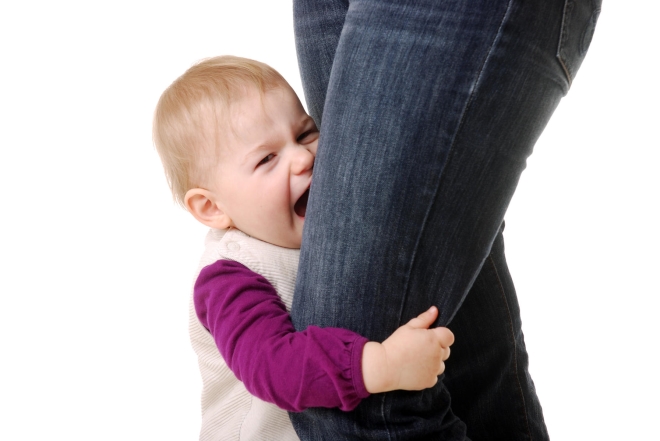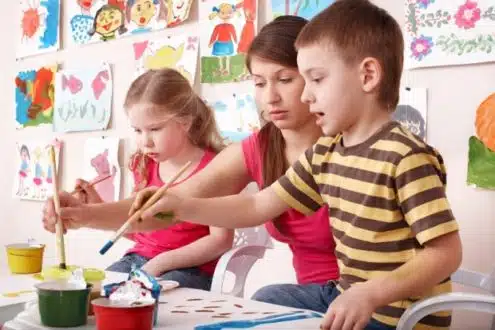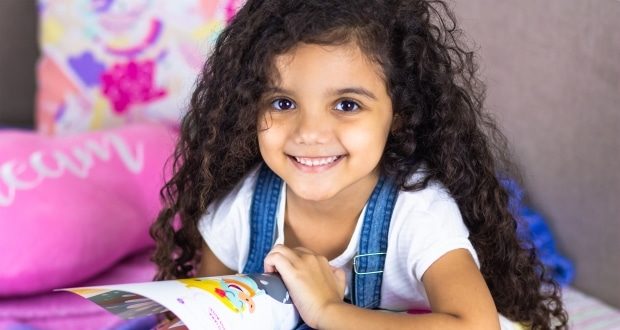Helping Your Child Deal With Separation Anxiety
Separation anxiety is a perfectly normal and expected part of the cognitive development of children. When children develop an understanding of object permanence, they start to realize that when you go away, you are really gone.
This usually happens when they are around nine months old. Separation anxiety is normal.
It can vary widely in intensity from child to child, and it can be quite unsettling for parents. I know this because my partner and I went through it.
The good news is we found some things you can do for helping your child deal with separation anxiety.
Expose your Child Safely to New People
Surrounding your child with friends and family while they’re still young will better prepare them to deal with separation. When a child frequently sees different people and spending time with them in a safe environment, they will feel safe in other situations where they are interacting with various people as well.
You should start slowly. Introduce your child to family and friends in the safe environment of your home. After you make sure your child is okay with this, you can start taking them to other houses and finally even leaving them for short periods of time with trusted people.
Trial Separation
The best way to make sure your child is ready to deal with separation anxiety is to prepare them for separation. Before they start spending longer periods of time at child care facilities, it ‘s nice to try a trial separation.
A trial separation is a great way to see how your child is going to react to separation and to prepare them for it. You can arrange for your child to spend shorter periods of time with grandparents or caregivers.
This will give them an opportunity to experience what separation from their parents is like and to see their parents always come back for them. The best time for a trial separation is after naps and feedings.
This is because babies are more likely to react with separation anxiety when they are hungry and tired. Make sure your baby is fed and rested. This is a good way to ensure they will not start associating separation with unpleasant feelings.
Minimize the Unknown
Babies are creatures of habit. If you want them to adjust to a new environment, make it as familiar to them as possible.
Obviously, this isn’t completely possible if your child is ever going to leave your side. There are, however, some very effective tricks.
Make sure your child is taking a familiar object with them when they are leaving home. It can be a toy, blanket, anything they feel attached to, and you think might give them comfort in new surroundings.
When they are away from home surrounded by new and unfamiliar things and people, having something they love will give them comfort. Separation is inevitable and finding the right facility for your child is very important.
We saw amazing results with our little one thanks to the individualized approach and care of educators in Child Care Chermside.
Don’t Make a Fuss
Children react to their parents’ feelings. If you want your child to understand staying in a child care facility is okay and only temporary, act accordingly.
Tell them you’re leaving and you’ll be back. Show affection, a kiss and a hug will make them feel safe and comforted.
Develop a goodbye ritual; as I said, babies are creatures of habit. Say goodbye the same way every time, no fuss, and they will know everything is okay.
According to the National Sleep Foundation, five to seven million children in the United States experience bedwetting. In most of the cases, bedwetting doesn’t need to be treated and it’s considered part of growing up. Can emotional stressors cause bedwetting in children?






